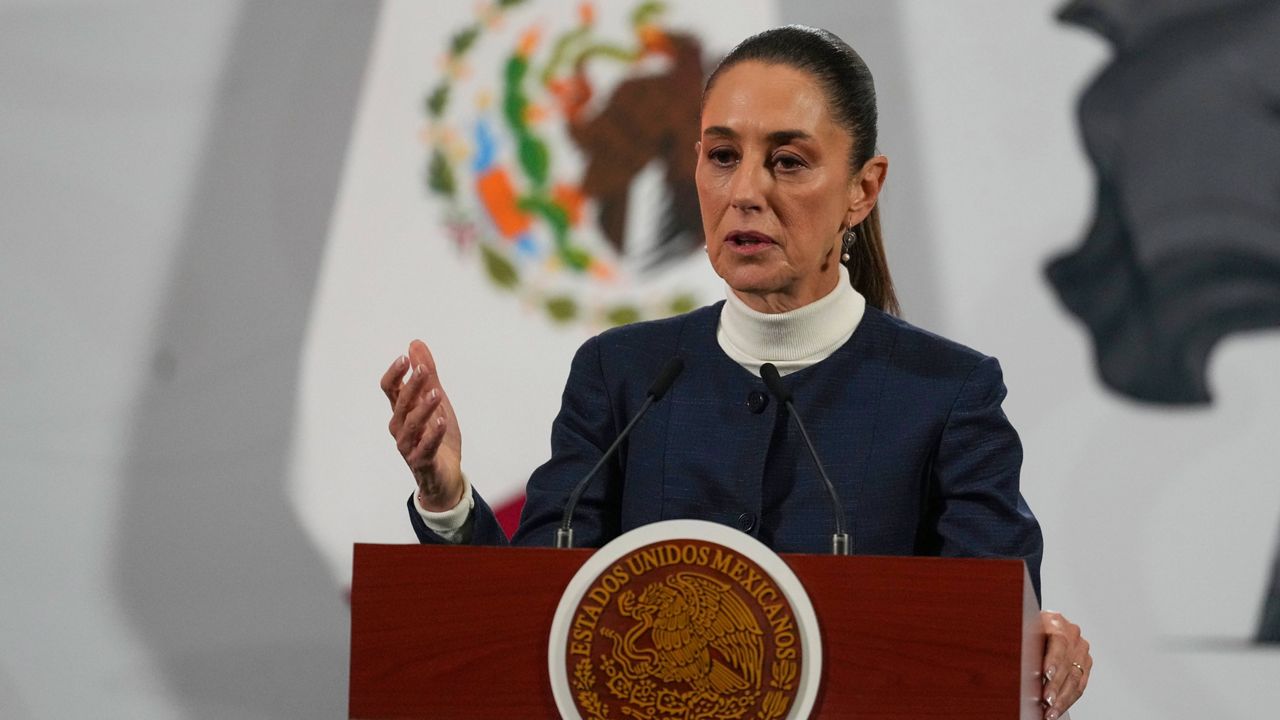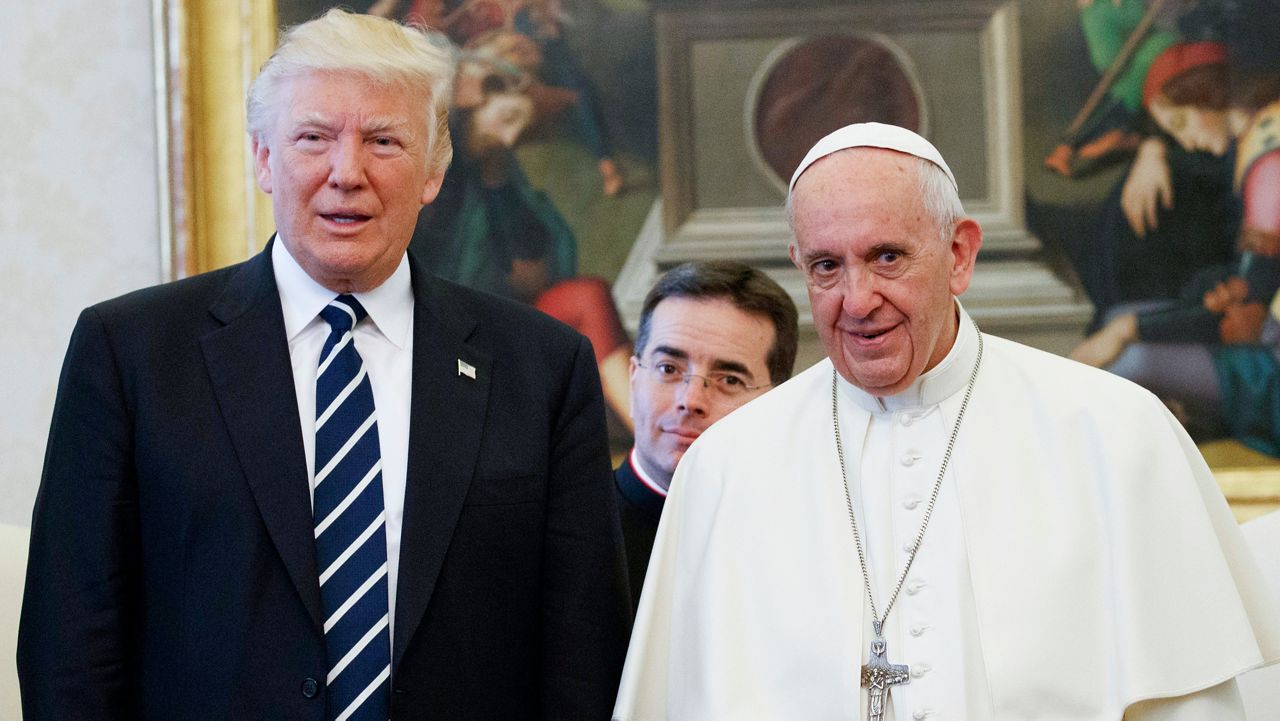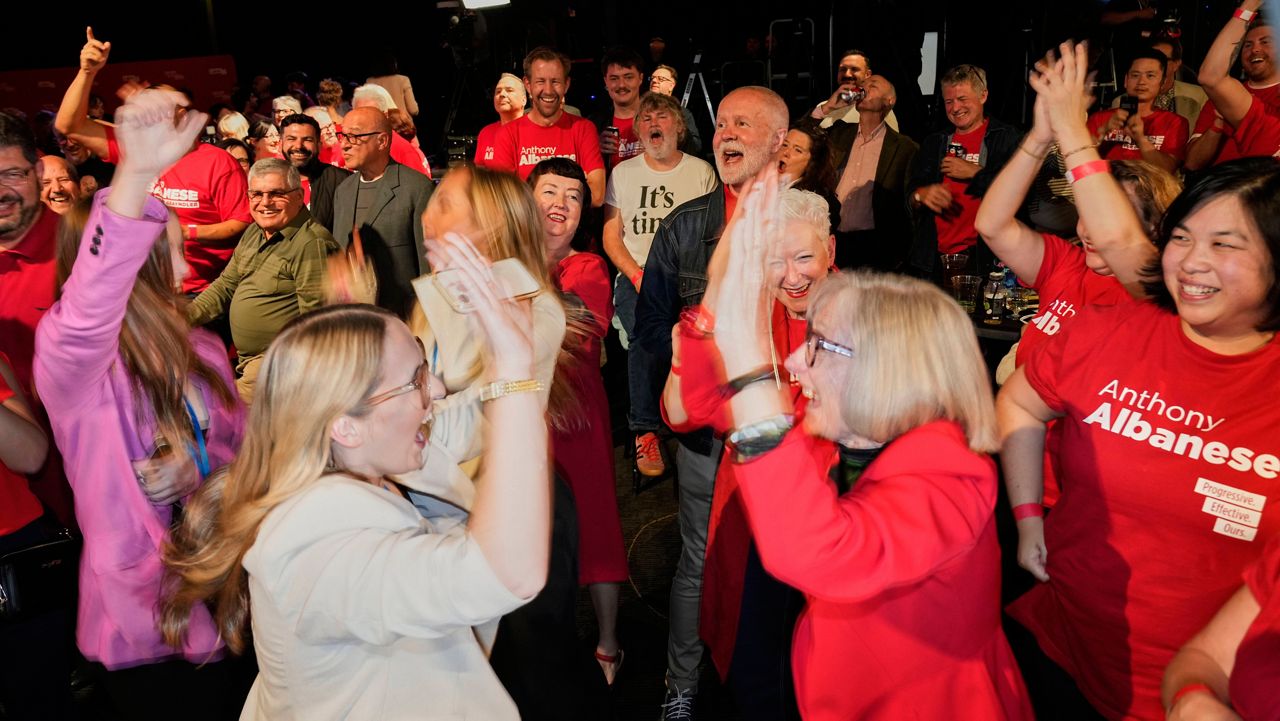President Joe Biden welcomed South Korean President Yoon Suk Yeol to the White House on Wednesday for a state visit, as the two leaders announced an agreement that includes plans to have U.S. nuclear-armed submarines dock in South Korea for the first time in more than 40 years.
What You Need To Know
- President Joe Biden welcomed South Korean President Yoon Suk Yeol to the White House on Wednesday for a state visit, which included talks in the Oval Office
- The two leaders announced an agreement that includes plans to have U.S. nuclear-armed submarines dock in South Korea for the first time in more than 40 years
- Among the other topics Biden and Yoon said they discussed were their countries’ joint investments in new technology, relations between South Korea and Japan, and the Indo-Pacific Economic Framework for Prosperity, and the war between Russia and Ukraine
- Biden and his wife, Jill, will host a state dinner Wednesday night for Yoon and South Korean first lady Kim Keon Hee, and on Thursday, Yoon will address a joint session of Congress
Shortly after arriving in his motorcade Wednesday morning, Yoon was honored with a ceremony on the White House South Lawn.
“Today, we celebrate the ironclad alliance, the shared vision of our future and the deep friendship that unites the Republic of Korea and the United States,” Biden said.
This years marks 70 years since the end of the Korean War, in which U.S. troops fought in support of South Korea. The nations have been allies ever since.
“It's an unbreakable bond forged in bravery, the sacrifice of our people, sanctified by the blood of American and Korean troops who fought and defended liberty,” Biden said.
On Tuesday, Biden and Yoon visited the Korean War Memorial in Washington, where they laid a wreath in honor of fallen soldiers.
“There, I saw the epitaph that reads, ‘Our nation honors her sons and daughters who answered the call to defend a country they never knew and a people they never met,’” Yoon said in Korean. “Why did they sacrifice their lives for this faraway country and for the people they never met? That was for one noble cause: to defend freedom.”
Korean war veterans were among those in attendance at the South Lawn ceremony.
Yoon said he came to the U.S. to celebrate the 70th anniversary of what he described as “a global alliance for the freedom, peace and prosperity around the world.”
Biden said the partnership has grown stronger through the years.
“Ours is a future filled with unimaginable opportunity and endless possibility,” Biden said. “Nothing — nothing — is beyond our ability to reach when our nations and our people stand united.”
Immediately after, Biden and Yoon held closed-door talks in the Oval Office.
At an afternoon news conference in the White House Rose Garden, Biden and Yoon said they committed to a new nuclear deterrence effort. As part of it, the leaders have agreed the to immediately consult with each other and respond swiftly in the event of a nuclear attack by North Korea.
“Look, a nuclear attack by North Korea against the United States or its allies or … partners is unacceptable and will result in the end of whatever regime were to take such an action,” Biden warned.
Yoon said the countries have agreed to establish a Nuclear Consultative Group, or NCG. He described the agreement as an “unprecedented expansion and strengthening of the extended deterrence strategy.”
“Now our two countries will share information on nuclear and strategic weapon operations plans in response to North Korea's provocations and to have regular consultations on ways to plan and execute joint operations that combine [South] Korea’s state-of-the-art conventional forces with the U.S.’s nuclear capabilities.”
Biden stressed that the U.S. will not station nuclear weapons on the Korean Peninsula, “but we will have port visits of nuclear submarines and things like that.”
In the past year, North Korea has been steadily expanding its nuclear arsenal, while China and Russia repeatedly block U.S.-led efforts to toughen sanctions on the North over its barrage of banned missile tests.
The stepped-up testing by North Korea includes the flight-testing of a solid-fuel intercontinental ballistic missile for the first time earlier this month. The recent test is seen as a possible breakthrough in the North’s efforts to acquire a more powerful, harder-to-detect weapon targeting the continental United States.
Among the other topics Biden and Yoon said they discussed were their countries’ joint investments in new technology, relations between South Korea and Japan, and the Indo-Pacific Economic Framework for Prosperity, an initiative launched last year that aims to promote fair trade between its members, make supply chains more resilient, address climate change and root out corruption.
Biden also said the leaders discussed working together “on promoting peace and stability in the Taiwan Strait” and vowed to continue their support for Ukraine in its war against Russia.
Biden and his wife, Jill, will host a state dinner Wednesday night for Yoon and South Korean first lady Kim Keon Hee.
On Thursday, Yoon will address a joint session of Congress.
The only other state visit to the Biden White House to date occurred in November, when the president hosted French President Emmanuel Macron.
It’s the first state visit by a South Korean leader since President Barack Obama hosted President Lee Myung-bak in October 2011.
In all, Yoon is spending six days in the United States before departing for Seoul on Saturday.









